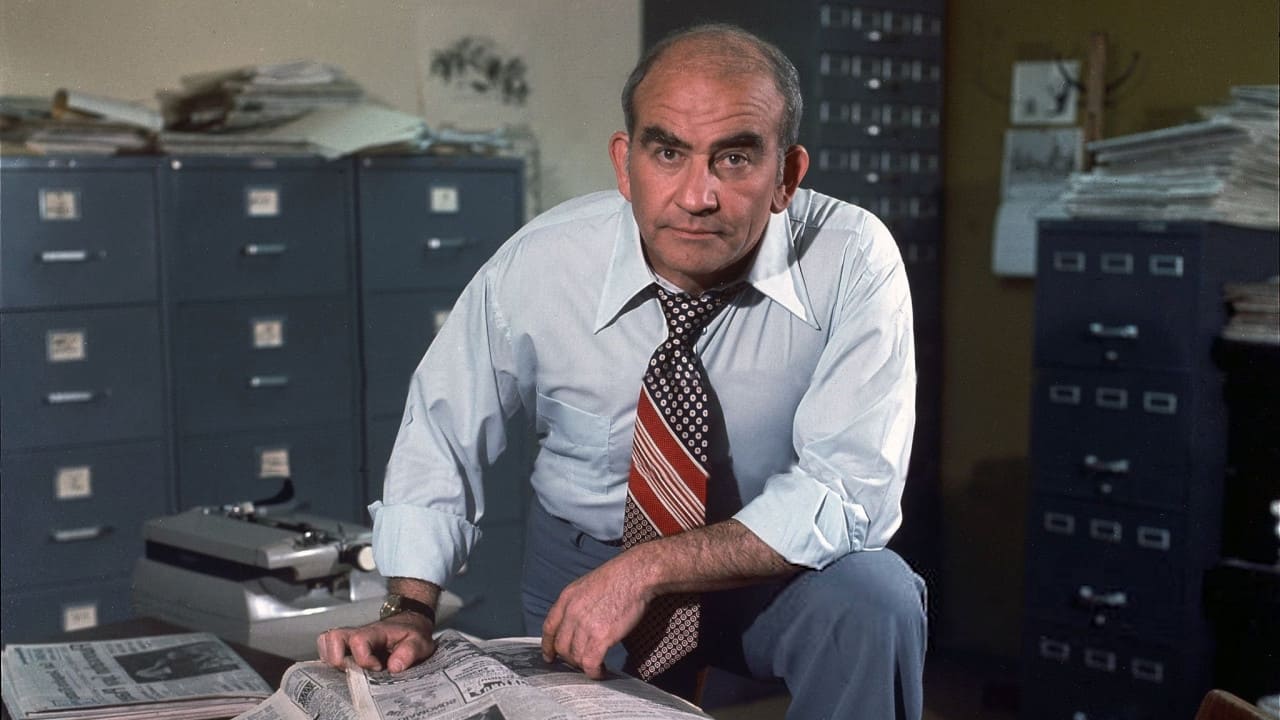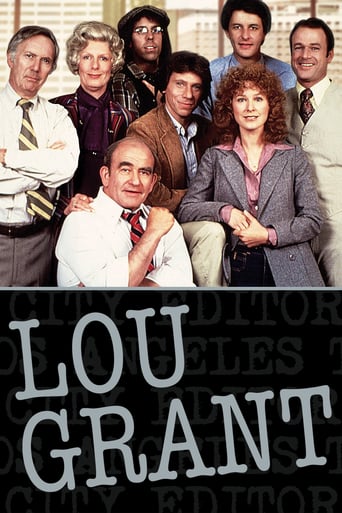

Lack of good storyline.
... View MoreIt is not only a funny movie, but it allows a great amount of joy for anyone who watches it.
... View MoreIt really made me laugh, but for some moments I was tearing up because I could relate so much.
... View MoreOne of the most extraordinary films you will see this year. Take that as you want.
... View MoreThis episode is what makes Lou Grant a truly exemplary television drama (from any era). It also makes routine, mediocre TV shows look even worse than they are, because the bar is set so high with an episode like this. Again, story editor April Smith writes a top script, and it features some very thorough research about what happens when a strike occurs, especially one involving a large city newspaper. The strike of the real-life Washington Post is referenced in this episode and I'm sure Ms. Smith used that event as one of the main inspirations here. What gets me, is that many years later, strikes like this still occur. In Hollywood, the writers guild has gone through similar ordeals, complete with scab writers and negotiations where the major studios are careful not to give the store away to the unions (most recently involving royalties on home video and streaming). It should be noted that SAG (the screen actors guild) has had several strikes, too, and that Ed Asner was the president of SAG during production of this series. I think it's significant that as Lou, Ed does walk the picket line toward the end of this episode. But what's really great is that April Smith shows the more human side of this situation, that neither side is a true villain, and that eventually there has to be a compromise on the numbers. I liked the scene where Lou tells Rossi to leave, when Rossi's temper flares and he purges the story he's working on as the strike begins. And I thought the part where Billie gets injured was very realistically staged. Also worth noting are the historical aspects of this story, in terms of where print media was and how technology was evolving. There are several scenes where we see how news layouts are being done and how the process is being modernized.
... View MoreJudged by 1977-82 standards, this show was peerless.Today, it's a bit "dated" in certain ways. But these elements actually make it a valuable portrait of its era.Talented cast, right down the line. Terrific writing. Skillful, sensitive directing. Highly relevant. Courageous. And one of TV's all-time-best role models in the lead.Every Emmy -- & there were MANY -- was fully deserved. Also the Peabody, the Humanitas, & all the other awards it won.Each season was as strong as or stronger than its predecessor; this is one show that was NOT running out of steam.In fact, during the Reagan Years, we needed it more than ever! (Would have loved to see its take on Iran-Contra.)Shame on CBS for bowing to pressure because of Asner's politics and the show's oft-controversial scripts.LOU still shines.Waiting impatiently for (legal) DVD release!
... View MoreIn the final episode of "The Mary Tyler Moore Show"(CBS-TV:1970-1977),when everyone but idiotic anchorman Ted Baxter was fired from station WJM-TV in Minneapolis in 1977,Mary Richards and her fellow casualties were left reeling. It was a bittersweet finale for the beloved series after seven seasons. Then Mary's old crusty boss,station news director Lou Grant,made a smooth transition. Within weeks,he had blown Minneapolis and snagged a good job in Los Angeles as the city editor of The Tribune. That's right:Lou Grant went from the glamour and glitz of TV news(such as it was at bumbling WJM) to embrace print journalism. At The Tribune,the formerly comic Lou(still played by Edward Asner)got serious about news. What resulted was "Lou Grant," a superlative drama series that became one of the greatest dramatic shows ever to embrace the mid-1970's. This was a grand series that arrived in the blazing afterglow of Watergate coverage and the rehealing from the aftermath of the Vietnam War. The bracing message of that era: Two dogged reporters(and a newspaper that backed them up)could change the world-and earn the public's adoration.Anti-press fulminations from the Nixon administration were largely nullified by scandals and disgrace in the White House. It was only later that an anti-media crusade took hold,drawing the battle lines between the press and the government,and breeding suspicion among much of the citizenry. It was later,as well,that newspapers were obliged to adapt to emerging,unimagined challenges:new media platforms,"citizen journalists",and information-dispersing gadgets with global reach that anyone could buy. The Trib reporters were spared these distractions and identity crises. For them,news still took the form of ink on paper,preferably with comics,crosswords puzzles,and horoscopes were part of the deal. The zeitgeist of "Lou Grant" was set forth in the clever opening sequence and this show celebrated it. Sure it may seem primitive that,in its first season,Trib reports were getting information and their sources with pencil and paper and banging out their stories on the typewriters. But "Lou Grant" was breaking ground from its debut on September 20,1977 producing 114 episodes for CBS-TV until the series finale on September 13,1982. Produced under Mary Tyler Moore's production company,MTM Productions.Reconfiguring a half-hour sitcom into a hour long drama was risky. The show dared to populate "Lou Grant" with a full-out ensemble cast which not only included Ed Asner,but also Robert Walden who played driven young investigate reporter Joe Rossi;Mason Adams as Managing Editor Charlie Hume;Linda Kelsey as reporter Billie Newman determined to make good in what was at the time a male-domination profession along with another ambitious young girl reporter Carla Mardigian portrayed by Rebecca Balding(who lasted one season). Also on board was the glorious Nancy Marchand(later,of course Tony's craven mother on "The Sopranos")was Mrs. Pynchon,who was the genteel owner of the Trib. Taking full advantage of its news-oriented setting,this was a brilliant series that dealt with issues ranging from nuclear accidents to religious freedom,media ethics and civil and social rights. This was a big-hearted series that won 13 Emmys,two Humanita Prizes and a Peabody award among many honors. This was drama-comedy hybrid that emerged from the series creators:James L. Brooks and Allan Burns(the writers-producers from "Mary Tyler Moore"),along with Gene Reynolds(who was not only the principal behind the TV incarnation of "M*A*S*H",but also was the producer of such shows as "Room 222"). This was a series that broke ground in the way television dramas are depicted and to this day it still holds the title some 30 years later.
... View MoreWhen I first heard about this show twenty six years ago (God, time flies), I thought this would be an extension of the show it spun off from, "The Mary Tyler Moore Show". What a surprise it was when this show turned out to be probably the greatest newspaper dramas in television history. The show wasn't afraid to take on controversial issues and even though it was a drama, it still had its lighter moments. Also, even though Ed Asner was the lead, it was more of an ensemble and the whole cast was great. This was an exceptional show and it is a lost classic.
... View More